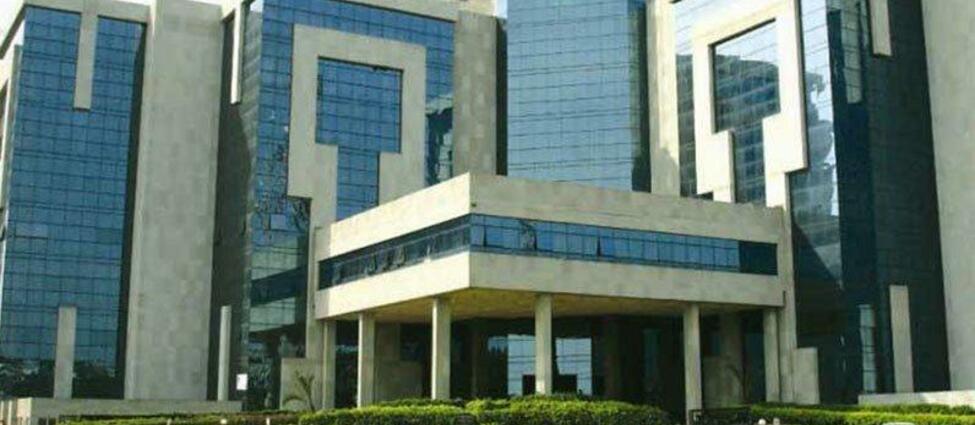

News
Panel Discussion on Draft National Policy for MSME
World Trade Center Bhubaneswar in knowledge partnership of Incubation Centre, Sri Sri University organized a “Panel discussion on the Draft National Policy for MSMEs in India” with a view to contribute to the ongoing national policy discussions which focused on several aspects/reviews related to the MSME sector like MSME law, finance, incubation support, sustainability orientation, market access support etc. The feedback, interventions and suggestions were further compiled and sent to the Ministry of MSME, Government of India for the overall development of the MSMEs.
Prof. Barada P. Panigrahy, Director, Incubation Centre, Sri Sri University briefly gave an introduction about the activities and initiatives taken up by the Incubation Centre to steadily work towards entrepreneurship development and contribute to the Start up ecosystem of the state. He proposed his recommendations for effective collaborations between academia and MSMEs, market linkage support on a virtual platform, product and process innovation along with faster release of funds for the MSMEs.
Ms. Monalisa Kar, Founder, Learning S’Park, EI & Transformational Consultant, delivered on the policy’s framework to ease financial grants, aids etc by integration of banks to allow one window access to multi-layered facilities. She also spoke about one window clearance portal/institution, advisory hubs/evangelists, skilling to redefine entrepreneurial competencies, neuro-based attitudinal mindset training and setting up of knowledge hubs.
Prof. Binaya Bhusan Jena, Founder, Farm to Fashion Initiative, NIFT Bhubaneswar during his address spoke about the significance of strengthening the MSME Sector. He recommended giving emphasis on registering the enterprises. He also spoke on simplification of registration procedures, reduce transaction procedures, set time frames of disposal of cases and facilitate taxation procedures. He further spoke on the need of MSME Promotion Council at district level, special provisions for rural, tribal and indigenous knowledge systems and simplified certification procedures for Zero Defect Zero Effect (ZED) from QCI, ISO Certification, Pollution Certificates etc. He urged to include institutional reforms whereas the policy should create a link between educational and technology institutions to provide low-cost internships with state funding for enterprises, collaborations between corporate and academic institutions, convergence between ministries and availability of land in clusters on district level. Grievance redressal cells for MSMEs at the state and district level, and special provisions for women entrepreneurs in terms of facilitation in registration, accessing credit, hand-holding, training, exposure and developing market linkages are few more recommendations he proposed.
Dr. Ashok Kumar Dash, Sr. Assistant Professor, Department of Business Administration, Revenshaw University comprehensively presented his recommendations so as to provide momentum to digital support for the MSMEs, focus on competency identification, training centers for marketing, skilled manpower, support for infrastructure development and various other action plans.
Mr. Santosh Swain, Co-founder, Inksand Arts and Crafts India Pvt Ltd emphasized on Business Process Management (BPM) to discover, model, optimize, analyse, track and automate business processes. He also urged to set up of institutions in various locations and the need to practice sustainability by adhering to produce eco-friendly methods to produce goods.
Mrs. Dharitri Priyadarshini, Research Scholar, Utkal University deliberated on MSME guided tours, alternative remuneration methods and placed her suggestions for the MSMEs to sustain their businesses while acting on ventilation of ideas to compete with the larger industries.
Prof. Deepsha Dhal, Assistant Director, Department of Public Policy, KIIT University in her address spoke about the significance of provisions for eventualities like natural calamities, disaster and pandemic. She drew attention towards Free Trade Agreements (FTAs), separate law to be enacted for MSEs, grievance redressal mechanism, enforcing contract 8.7 (iv) access to legal help, intergovernmental roles / responsibilities, establishment of upstream and downstream ancillary units etc.
Dr. Sulipta Acharya, Member, WECANB Global, Bhubaneswar spoke vividly to work towards an inclusive MSME Policy. She spoke about the necessity of awareness to promote self-reliance among transgenders, generate livelihood opportunities for them and a dedicated segment in the in the revised policy to specifically cater to the transgenders.
Mr. Dasarathi Mishra, Former CGM, RBI & Founder, Abhyutthana Foundation Charitable Trust gave a detailed presentation on the proper training of lending institutions to augment credit flow to MSME sector, implementation of E-Tracking of MSME loan proposals, state level policies, venture capital for the sector and role of Abhyutthana Foundation Charitable Trust for financial literacy.
Mr. Kamala Kanta Dash, Director, Centre for Climate Change and Sustainability, Sri Sri University moderated the session.
Ms. Nimeshika Natarajan, Assistant Director, World Trade Center Bhubaneswar proposed the vote of thanks.
The session was conducted on 28th March 2022 on a virtual platform.